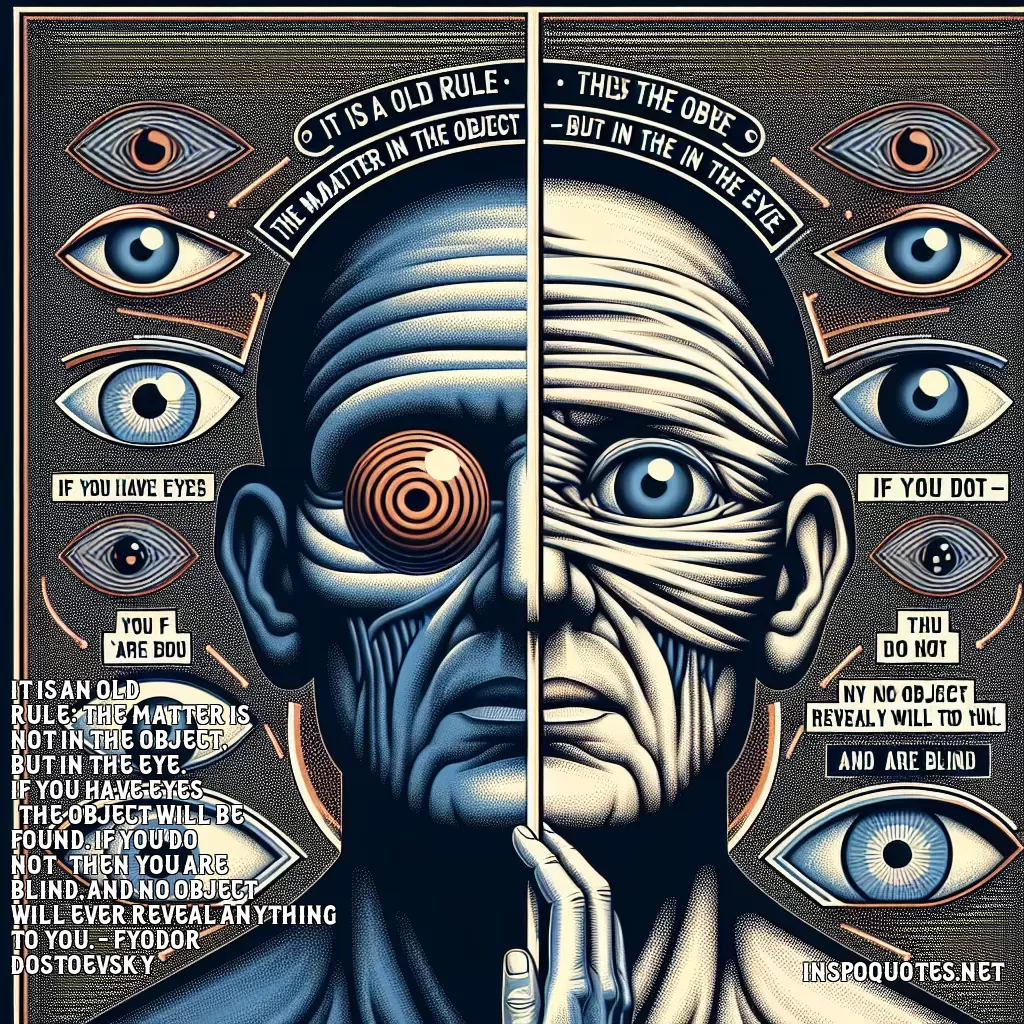
It is an old rule: the matter is not in the object, but in the eye. If you have eyes – the object will be found. If you do not – then you are blind, and no object will ever reveal anything to you. - Fyodor Dostoevsky
👁️ 6 views
Fyodor Dostoevsky’s quote, "It is an old rule: the matter is not in the object, but in the eye. If you have eyes – the object will be found. If you do not – then you are blind, and no object will ever reveal anything to you," speaks to the subjective nature of perception and understanding. This quote suggests that the essence or meaning of an object does not reside in the object itself but is determined by the viewer's perception and insight.
Dostoevsky implies that having "eyes" symbolizes having awareness, insight, and an open mind. Those who possess these qualities are able to see beyond the superficial layer of objects and grasp deeper meanings or truths. In contrast, someone who is "blind," or lacks awareness and insight, will be unable to uncover or appreciate the significance of what they observe, regardless of how apparent it might seem to others. Thus, the quote draws a strong link between perception and enlightenment, suggesting that understanding the world requires more than just physical sight; it demands mental and emotional acuity.
Furthermore, this insight can be applied broadly to various aspects of life, such as art, literature, and human interactions. For instance, a painting might hold profound significance for someone with the eyes to see its deeper message, whereas another person might dismiss it as simply colors on a canvas. Dostoevsky's words encourage cultivating a deeper, more empathetic form of awareness to truly "see" and understand the world around us. It’s a call to develop one’s inner faculties to perceive and appreciate the complex and subtle beauty embedded in everyday life.
Quote By:
Fyodor Dostoevsky
About Fyodor Dostoevsky:
Fyodor Dostoevsky was a renowned Russian novelist and philosopher born on November 11, 1821, in Moscow. He is best known for his deep psychological insight and exploration of existential themes in pivotal works such as "Crime and Punishment," "The Brothers Karamazov," and "Notes from Underground." Dostoevsky's literary legacy has profoundly influenced modern literature and philosophical thought, delving into the complexities of human nature and morality until his death on February 9, 1881.
Bio added on: 2025-02-16 11:57:47
